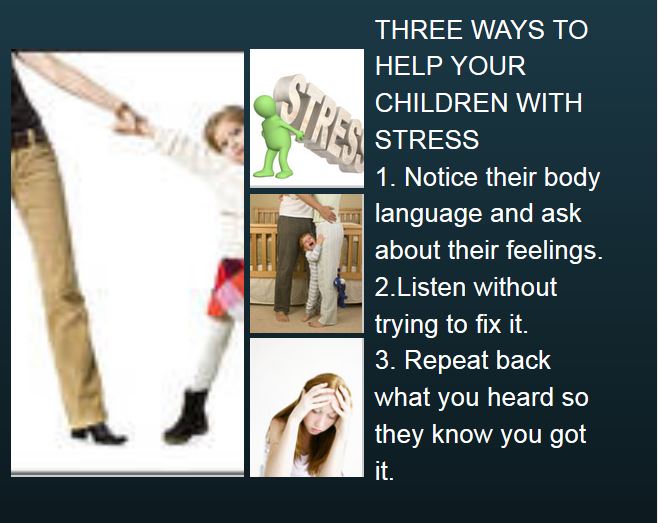Anger and Stress Management Tips for Satisfying Relationships by Dr. Jeanette Raymond, Ph.D.
WHY SHOULD YOU CARE ABOUT YOUR CHILD’S STRESS?
1. STRESS MAKES KIDS SICK AS ADULTS
An article reported in Pediatr Adolesc Med, 2009, indicated that childhood stress that went unoticed and untreated resulted in chronic sickness when these children grew up.
A further study published in Neuropsychopharmacology, 2010 revealed that chronic stress resulting in unhappy chilhoods resulted in an elevated inflammatory response to adult stress, weakening the immune system.
2. STRESS MAKES KIDS ANXIOUS AND DEPRESSED WHEN THEY REACH ADULTHOOD
Children who experience long term stres in childhood are four times more likely to develop anxiety and depression in adulthood, according to a study published by the British Medical Journal in 2008, using a large sample of over 8000 participants.
A study reported in the American Journal of Psychiatry, 2014 found that preschool children with stress and depression was the most salient predictor of later school-age depression over and above any of the other well-established risk factors.
3. STRESS REDUCES CHILDREN’S MEMORY CAPACTIY
Childhood stress shrinks the Hippocampus, the memory center of the brain, as reported in Proceedings of the National Academy of Sciences, 2009;
HOW TO RAISE YOUR AWARENESS OF YOUR CHILD’S STRESS
Many children hide their stress from parents so as not to be a burden. They want to be “good” so that you will value and love them, especially when they see you stressed out and struggling to juggle so much in your life.
BUT children don’t have all the tools they need to manage that stress.
They don’t often recognize it and can’t put words to it
The consequences can be irreversible if parents don’t pay attention to the subtle signs of stress in thier kids.
THREE WAYS TO HELP YOUR CHILD WITH STRESS : signs of stress in childhood
1. Notice their body language – sagging chin and shoulders, droopy facial expressions, lethargy, fidgetyness, nail biting, hiding large parts of the body in clothes, hiding their face in their long hair are a few things to look out for. Change of eating habits is another sign of childhood stress – eating more, hiding food, eating less, hoarding food, eating more junk food, cravings, and loss of appetite.
2. Listen to the messages they are sending through their bodies and then invite them to share their worries and doubts using words. You have to start by showing that you notice something and give an example of how you might feel when you are stressed – that will make it okay for the child to follow suit without the guilt of adding to your burden. Listen to their pain – don’t focus just on the issue or context in which they are describing their struggle.
3. Empathize by repeating what you heard in your own words, so that they know you got it. Don’t try to fix it as that gives the impression that you just want everything to go away and not bother you. Be with them, hand in hand. If they ask for advice then you can offer some suggestions but make sure you follow up and maintain that empathic connection.
Putting stress into words and empathizing reduces stress by creating a sense of safety and connection.
Copyright, Jeanette Raymond, Ph.D.
You might also like:
Three ways to stop chronic stress from making you fat!
Fibromyalgia is linked to childhood stress and unprocessed negative emotions
Sress and difficulty accepting help can make your hair fall out
Disclaimer: this article is for informational and educative purposes only. Dr. Raymond is not responsible for any reactions you may have when reading the content or using the suggestions therein. Interacting with this material does not constitute a therapeutic relationship with Dr. Jeanette Raymond

